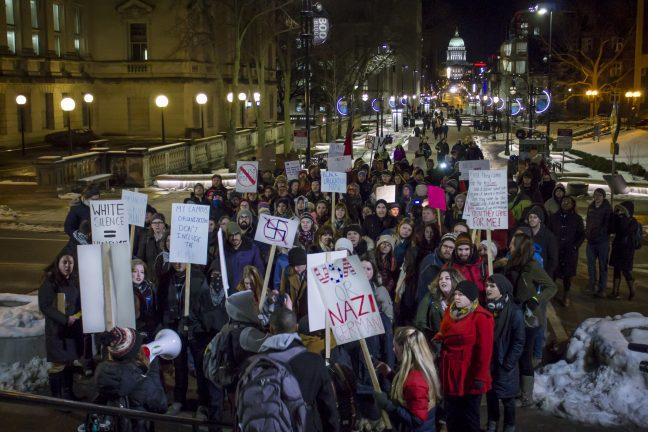At a lecture Thursday, an English professor sought to bring inspiration to black women scholars in a world with near minuscule black and female representation.
The Center for the Humanities hosted Christina Sharpe, an English professor, to deliver the lecture “Black. Still. Life.,” which focused on the diaspora of black people from the time of slavery until now.
Sharpe discussed slavery, the justice system and a project in Arkansas to collect soil from the sites of lynchings. Through these topics, Sharpe explained her perspective on what it means to be black in today’s world.
The voices of other black women voices inspired Sharpe to think about her own racial identity and history of oppression more critically.
The lecture was given to honor Nellie Y. McKay, who was a Evjue-Bascom professor of American and African-American literature at the University of Wisconsin. McKay is well known for her work as co-editor of the “Norton Anthology of African-American Literature,” Sharpe said.
In honor of McKay, Sharpe discussed how McKay was an inspiration for many black women scholars, especially at a time when there is not much representation of black women in the world. She referenced her book “In the Wake: On Blackness and Being” to support her claims.
While slavery is long past, Sharpe said we still see echoes of racism today in the form of structural inequality and sometimes outright oppression.
Events such as the Tony Robinson shooting illustrate there is a tense racial climate not only across the country, but also in Madison. The shooting sparked a wave of protests on campus and throughout the city.
Despite tensions, Sharpe also explained the power of protests. She believes protests can make enough of a change to spark a difference on racial tensions.
But even if protests can create change, Sharpe expressed concern that free speech is being suppressed at UW. A recent UW System rule states a student could be kicked out of their university if they are deemed too disruptive in their protests. Sharpe thinks protests should be disruptive if they are to make a change. She explains this as a socio-political climate problem.
“Protests are meant to be disruptive,” Sharpe said.
Sharpe said protests aid in the battle towards racial equality. But she said we cannot forget the history of slaves if we truly want equality.
Sharpe compared the discrimination against black people to “whale fall.” Whale fall is the phenomena of dead whales sinking to the ocean floor and being eaten completely by other aquatic life within days.
Sharpe related this to how black people were thrown and dumped into the ocean and eaten by aquatic life during the transportation of slaves in the 1800s. She stated the atoms of slaves were still in the ocean and serve as a connection from coast to coast of blackness.
Sharpe hopes she influenced people to view blackness with a new lens.
“We are still alive like hydrogen and oxygen,” Sharpe said.


